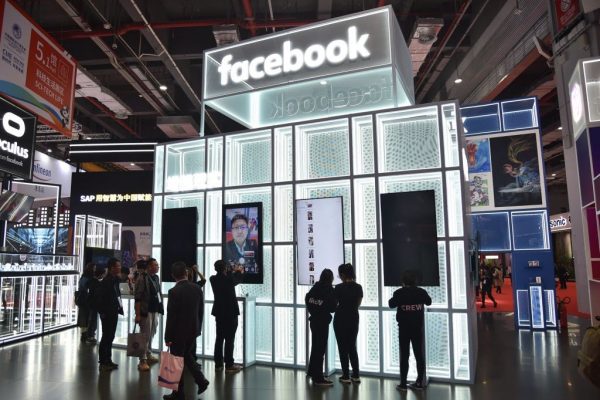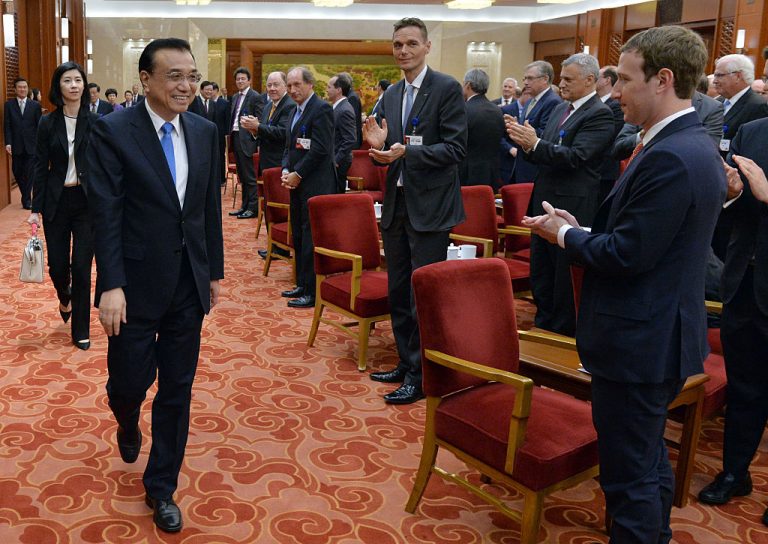Social media and social tracking giant Facebook is facing scrutiny for publishing ads sponsored by the Chinese Communist Party (CCP) that astroturf over the genocide of Uyghur Muslims in the Xinjiang Autonomous region, according to a Wall Street Journal article.
WSJ describes the “advertisements and posts by the Chinese government and state media” played on Facebook, one of the Big Tech consortium’s biggest arms, as “videos of people in Xinjiang, including some children, proclaiming to the camera that their lives are improving and that Western nations are engaging in a plot to try to destabilize China.”
In another instance, Xinhua, the propaganda mouthpiece of the communist regime, published an “ad promoting a video interview with the mayor of Xinjiang’s capital, Urumqi, in which he says that the ‘peace and stability that people from all ethnic groups in Xinjiang once longed for has become a reality.’ He said a ‘plot’ by Western countries to disrupt China’s internal affairs is “doomed to failure.”
WSJ says Xinhua paid $100 to air the ad, which was shown 200,000 times before it was removed.
CGTN, a branch of official Party television station CCTV, published an ad “featuring students in a Xinjiang boarding school, where some academic researchers say children of arrested or detained individuals are sometimes sent. In the video, children in interviews say they are happy to be in the facilities because they are eating nutritious food and receiving an education,” according to WSJ.
Success
You are now signed up for our newsletter
Success
Check your email to complete sign up
CGTN paid $400 for the video and it was viewed over a million times in a four-day period targeting Facebook’s users in countries such as Pakistan, India, and Bangladesh.
Beijing as one of Facebook’s top clients
While Facebook is banned in mainland China by the CCP, the Party nonetheless uses the platform extensively to manipulate overseas opinion. According to data by DataReportal, Facebook is the third most visited site on the Internet and is the largest social media outlet, eclipsing Tencent’s WeChat by a scale of more than 2:1. Four CCP propaganda hubs sit in the top 20 most popular Facebook pages on the platform. CGTN is ranked #4 at more than 113 million followers, ahead of the Coca-Cola and the Real Madrid football team pages.
China Daily is #9, and Xinhua and People’s Daily are #19 and #20 respectively.
Of Facebook’s top 10 cities by active users, none are based in the United States or Canada. The closest is Mexico City at #5 with 12 million. First place is Dhaka, Bangladesh at 17 million. As for countries with the largest advertising audiences, first place India eclipses second-place United States by a margin of 320 million to 190 million users.

English is the most prominent language on Facebook by a landslide at more than 1.1 billion users, with second place being Spanish at 340 million and Hindi in third at 180 million.
The Party’s use of whitewash campaigns to attempt to stunt public outrage of their crimes against humanity against the Muslim minority are part of an ongoing campaign typical of the regime’s approach to public relations. In early March, after several Uyghur women stepped forward to recount the harrowing experiences of public gang rape of Uyghur females in Xinjiang’s concentration camp, officials from China’s Ministry of Foreign Affairs decided to go on the offensive, with officials launching a public smear campaign against the women at formal press conferences.
In January, propaganda mouthpiece China Daily published an article, complete with smiling Uyghur children playing while wearing masks, lauding the regime’s persecution of Uyghur women as if it were actually emancipation, saying they were no longer “baby making machines” in response to a report published by Dr. Adrian Zenz which found the Party’s campaign of forced abortion and forced sterilization had reduced the birth rate of the Uyghur population in some Xinjiang prefectures to near-zero levels.
In its article, WSJ reported that a Muslim Facebook employee in the company’s internal communication system called on Chris Cox, Facebook’s Chief Product Officer, to address the issue of the ads making light of the Uyghur persecution and genocide. Cox reportedly replied in good nature, calling the genocide designation “incredibly serious,” adding he would “check with our integrity teams for a status update.”
WSJ says according to unnamed analysts at an unnamed research firm, the Big Tech arm’s revenue from CCP advertisers may be in excess of $5 billion per year, which would make the world’s most dangerous Communist regime Facebook’s second-largest source of revenue next to the United States.
Facebook does not list revenue sources by country.
Follow us on Twitter or subscribe to our weekly email
















